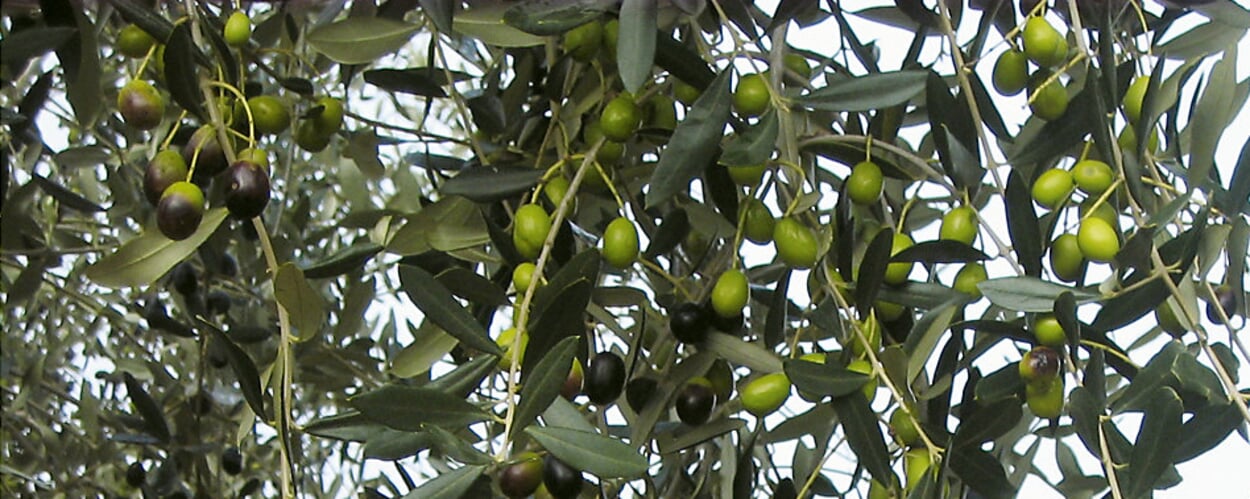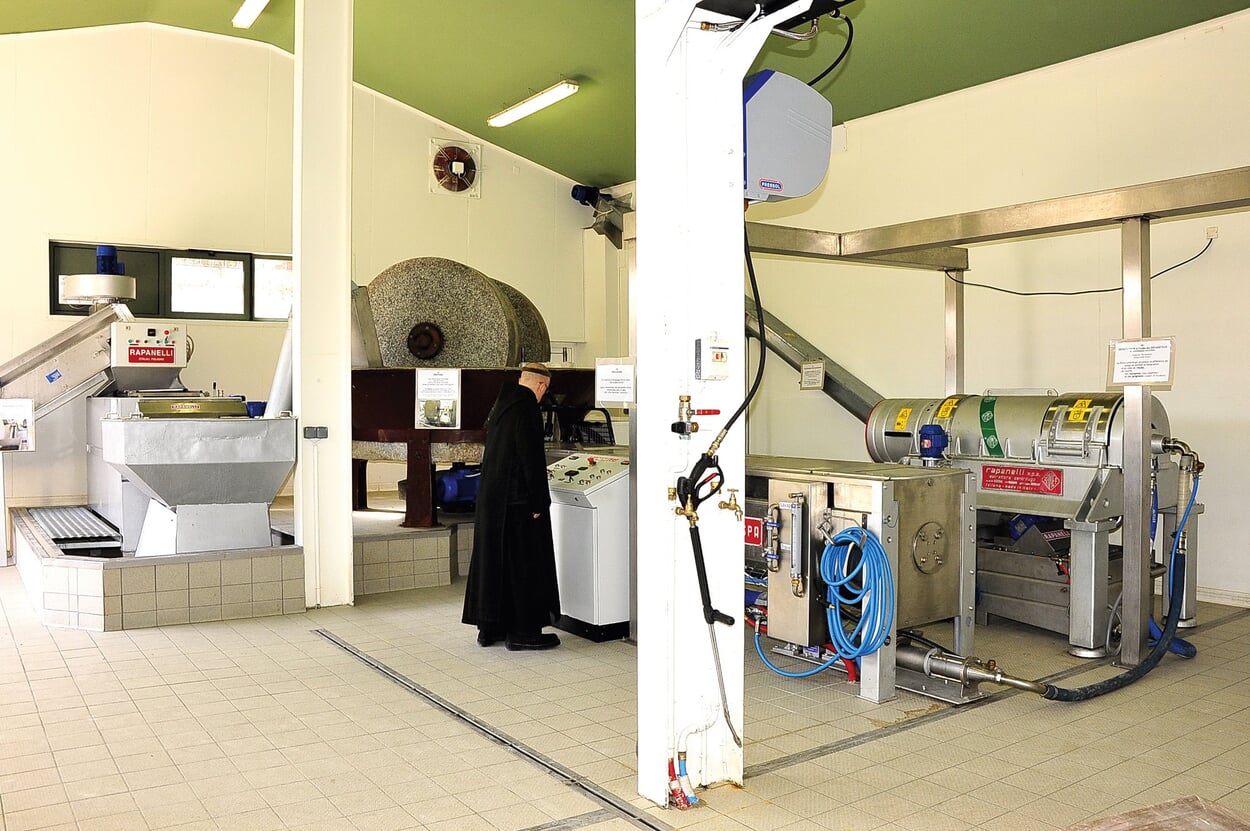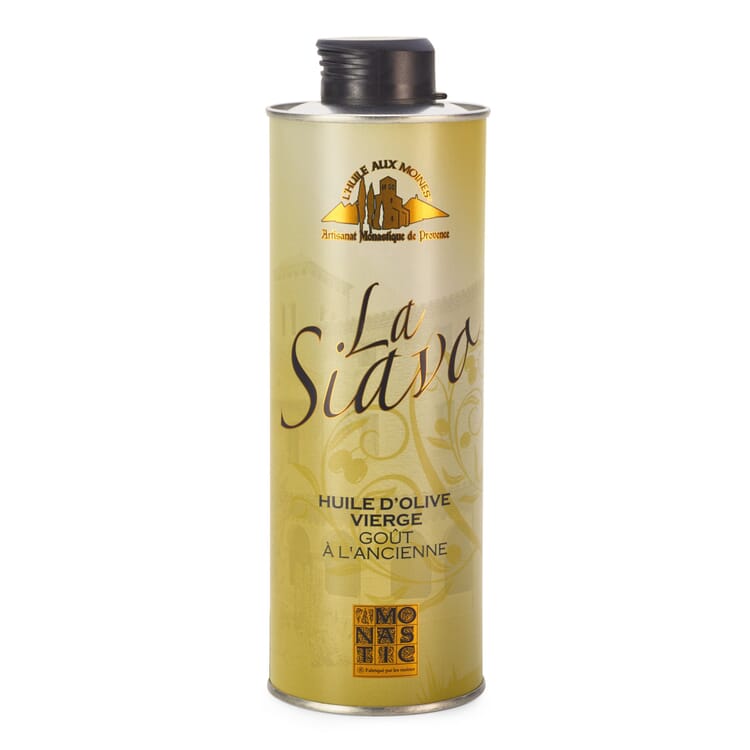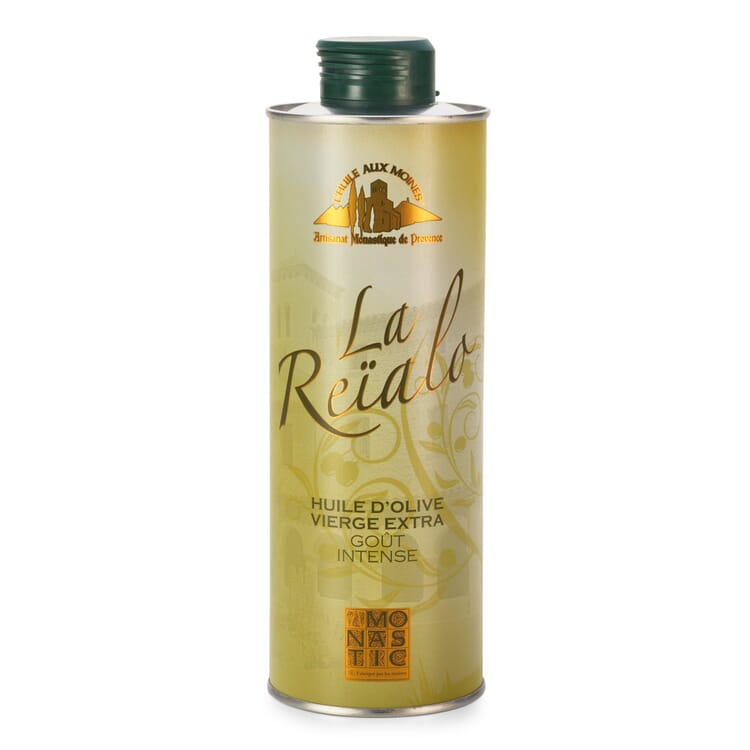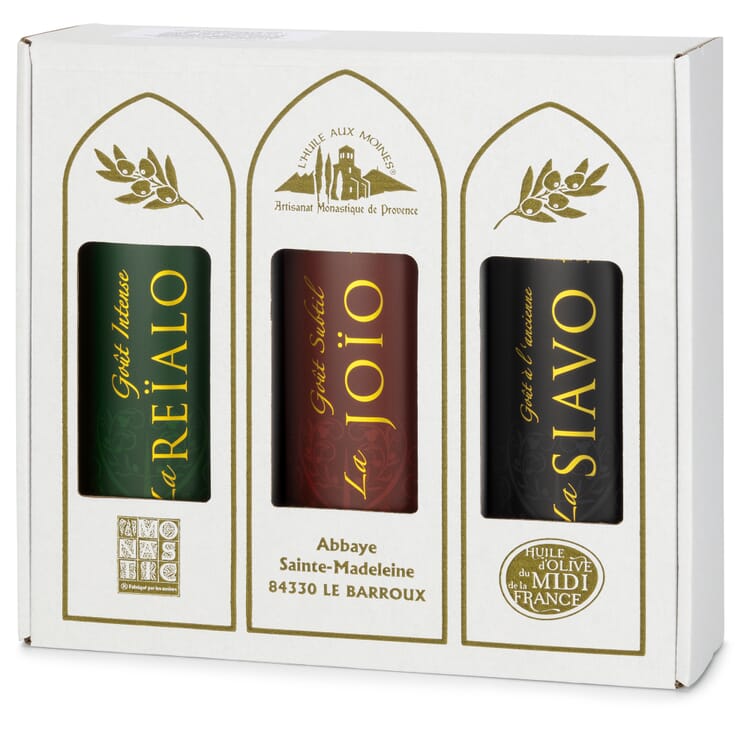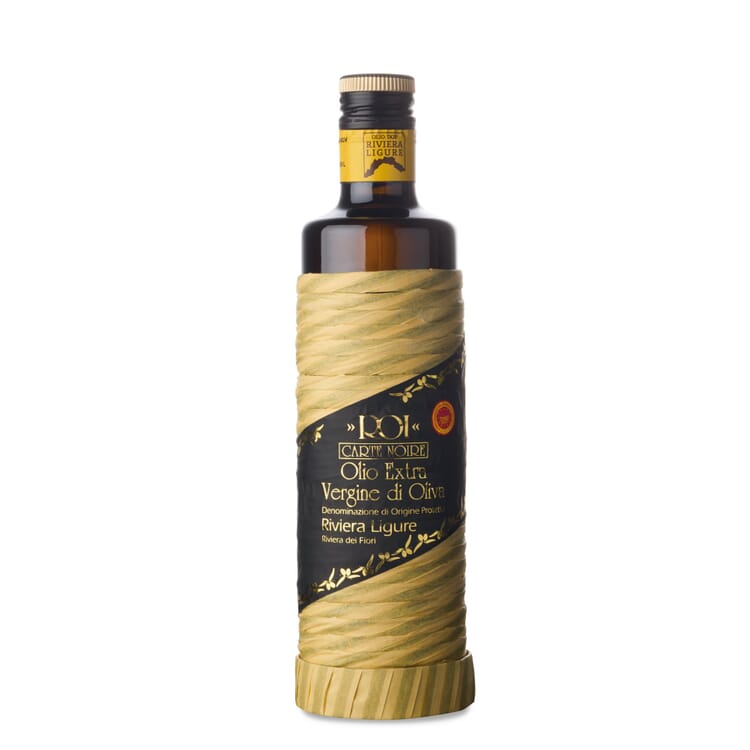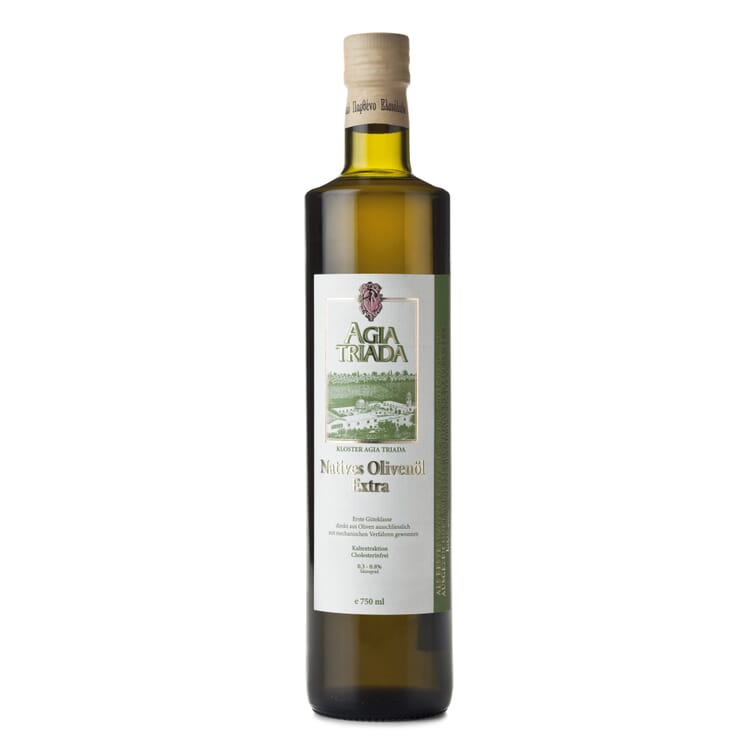Gutes aus Klöstern
From the foot of Mont Ventoux. Provençal olive oils
Oil, wine and bread are primeval foods and have a rich symbolic meaning in Christianity. So it is no coincidence that the Benedictines of the Provençal Abbey of St. Madeleine in Le Barroux devote themselves precisely to the production of these three foods and are the only monastery in France to operate an oil mill. Their living region between the Dentelles and Mont Ventoux is rich in olive trees alternating with vineyards. Olive tree cultivation also has a very practical meaning for the monastery, as it not only creates a sustainable, generational and increasingly productive agriculture, but also a good field of activity for the monks' manual labor. They have deliberately not mechanized the harvesting of the olives between November and December. This also protects the delicate fruit and thus increases the quality of the oil. As long as the plantations are still under construction, olives have to be bought in from the surrounding area. How long the olives may be stored between harvesting and processing depends on which flavors one wishes to preserve in the later oil by varying the degree of ripeness or even controlled fermentation. The mill with its technical equipment is at the cutting edge of oil milling; in the small picture below you can see the practical organization of the equipment.
This plant is grounded, as it were, by its centerpiece, the heavy granite Tuscan stone mill, which in the twin arrangement of the two upper stones corresponds to the centuries-old method of construction. Before the stones can press the oil out of the olives by their pressure alone, the fruit must be crushed. This olive pulp must not be heated under any circumstances, which could happen if the stones were to run too fast. For this reason, the grinding process is a leisurely affair and takes about 30 minutes per batch. The quality of the oil obtained in this traditional way can now be further improved by modern technologies, namely by centrifuging the oil, which mainly separates admixtures of water from the fruit. The oil is filtered as required. Since oil production is a seasonal campaign work, it is advisable to carry out bottling only depending on the sales situation and to store the oil in larger quantities under oxygen exclusion.

